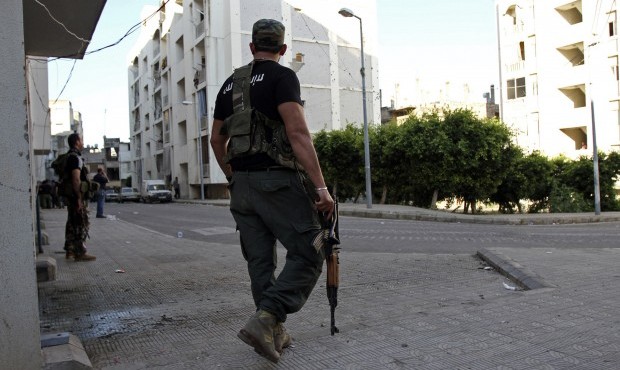For a long time, we refused to acknowledge that what is happening in Syria has become a civil war. This is something that persisted even after the war expanded to include all parties in the country and draw various other elements into the conflict, which made it difficult not to recognize that what began as a popular rebellion was transformed into a civil war by domestic, regional and international factors.
After recognizing that civil war is now the reality on the ground, many refused to acknowledge that it transformed once again, into a sectarian war. Opposition representatives claim that Syria will not fall into the quagmire of sectarian violence and that the Syrian opposition represents all communities. But talk is one thing, and reality another. What is happening on the ground in terms of killings, displacement, and exactly who is being targeted makes it crystal clear that this is a sectarian war with all the inherent ugliness and brutality, and it is tearing Syria apart.
Figures published by the pro-opposition Syrian Observatory for Human Rights earlier this week show that more than 94,000 people (other estimates suggest as many as 120,000) have been killed since the start of the crisis. Although the majority of casualties are Sunnis, approximately 41,000 Alawites have also been killed in the fighting, not to mention casualties from other sects. While we must consider these figures in light of the situation unfolding in Syria, the reality is that a lot of these killings targeted specific ethnic or religious identities, including targeting Sunnis or Alawites.
The actions of the pro-regime Shabiha militia and the religious extremists, along with the horrific and tragic stories told by the refugees and massacre survivors paint a picture of sectarian war. A disgusting video broadcast online that even the Syrian Opposition Coalition condemned shows one of the so-called leaders of the Independent Omar Al-Farouq Brigade mutilating the corpse of a pro-government fighter. This demonstrates the extent of the bloody war playing out in Syria, and the hatred that this produces and which serves to feed sectarianism.
Hassan Nasrallah’s recent speech also emphasized the sectarian nature of the war, and confirmed what we already knew, namely that Hezbollah is fighting alongside the Assad regime forces. A statement by Iraqi prime minister Nuri Al-Maliki warned that the opposition’s victory will lead to civil war in Lebanon, divisions in Jordan, and a sectarian war in Iraq; this only serves to prove the sectarian nature of the Syrian war. Iran’s position, based on rejecting the collapse of the Assad regime, also adheres to this approach and articulates the true nature of the proxy war taking place in Syria, which is feeding on the fire of sectarianism.
In Lebanon, Jordan and Iraq, many feel threatened by the potential expansion and implications of the Syrian war, including its sectarian complications, regional losses and international repercussions. Iraq, particularly following the 2003 invasion, has witnessed civil strife that escalated into something akin to a civil war. The country is sitting on a sectarian ticking time bomb.
Jordan has constantly paid the price for its geographical location and its surrounding neighbors’ volatile conflicts and bloody wars. It deals with waves of refugees escaping internal wars or sectarian violence, and has endured the brunt of the Syrian war that pushed Jordan to act beyond its capabilities and limited resources, particularly given that 10% of the Syrian population are now residing in the country, according to King Abdullah II.
As for Lebanon—which has witnessed one of the longest and harshest sectarian wars in history—it has always been prone to sectarian rifts, given the fragility of its domestic political and constitutional system. This only serves to weaken the country’s fabric and fails to promote national unity. For the above reasons, the fire of the Syrian war spread quickly as missiles fell across the border into Beirut and then Tripoli, and we began to see warning signs of sectarian war. Nasrallah’s speech framed Lebanon as a whole—not just Hezbollah—as a victim of the Syrian war, and serves as another indication that the repercussions of such wars transcend borders.
The regime will fall, and it deserves to fall, particularly in light of all the death and destruction that has occurred. However, Syria must persevere and rid itself of this sectarian affliction. What’s the point of all this horror if the regime falls and Syria falls with it, or if sectarianism spreads to ignite more regional fires? The world witnessed—and was appalled by—what happened in Iraq, so how can we allow it to happen once more in Syria? What message is being put forward to the minorities if the price of overthrowing an authoritarian regime is the emergence of sectarianism and chaos and the death of openness and coexistence?
The battle in Syria is greater and more important than just overthrowing the Assad regime. Will the nation succeed in its challenge or will it join the states that have fallen to chaos, destruction, corruption and sectarianism?
